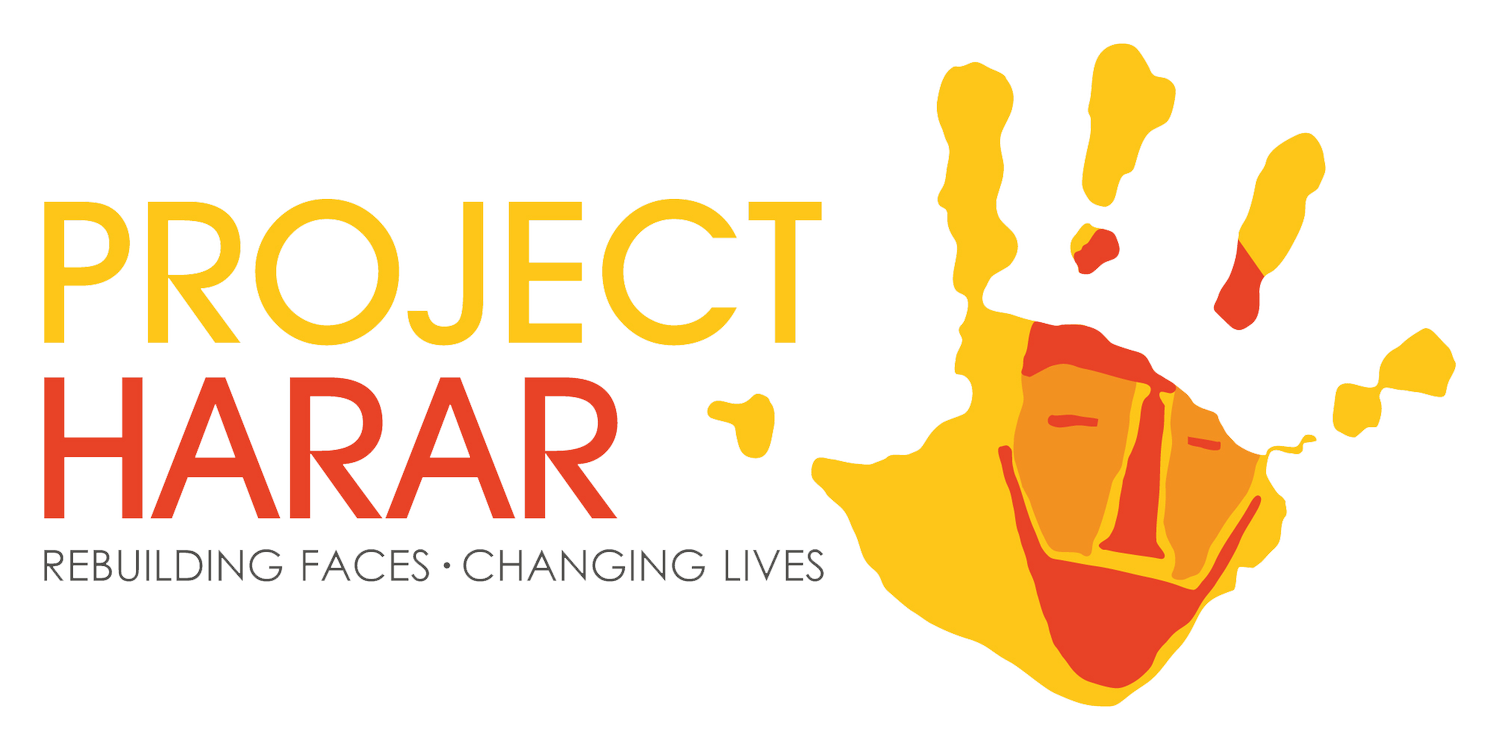Catch up with Gudina over a year after surgical treatment
We first met Gudina when he was a year old and having his first surgery for his cleft lip and palate in 2019. Due to the halting of elective surgery in Ethiopia at the beginning of March 2020, Gudina, like hundreds of other children across the country had their medical treatment delayed as a response to the threat and impact of the Covid-19 Pandemic.
In February 2021 Project Harar were finally able to relaunch their services in the Amhara region, meaning that Gudina – and other children with untreated cleft conditions – were finally able to access vital treatment. For Gudina, this was his second surgery for his cleft palate. Our programme officer Nigatu was able to speak to Gudina’s mother about their story in February 2021, you can read that blog post here.
In October 2021 – eight months after Gudina’s second surgery, we were able to catch up with Guidina’s father, Mr. Tarekegn over a phone call. We spoke to Mr. Tarekegn about Guidina’s recovery post surgery and he also gave us the full story of how he had used Project Harar's services.
Gudina’s story with Project Harar:
The family live in rural kebele (village) surrounded by mountains, in the Gondar zone of the Amhara region. Gudina is now three years old and has two siblings, one older sister and one younger sister, they are a family of five, Gudina was the only one in the family who was affected by cleft lip and palate. The family work in agriculture, producing products like teff and millet.
“I was very scared at first to be honest, I have never seen such a thing in my life and in my community. When he was born at the Kebele (village) clinic his mother saw him first and she was scared and upset, then she called up on me and told me what has happened. I immediately went to the nursing room to see him, I was so scared so I went to the doctors and asked what happened, they calmed me down and told me that it can be fixed and that Gudina was going to be ok.”
”When Gudina was fifteen days old I brought him to our zone (Gondar) to have him checked up at the Ibex hospital, but they told me that he was too young to receive treatment. Then, after a year (when Gudina was one years old) the local doctor who was aware of Gudina’s condition told me about Project Harar’s programme at Bahir Dar. First we went to a hospital called Debre Tabor Hospital, then they referred us to Bahir Dar Hospital where he had is cleft lip surgery at. After that in a year they contacted us again to tell us that Gudina would be able to have his second surgery for his cleft palate.”
" Before Gudina’s treatment there was a lot of pressure from the community, they said this happened because of our families sins. I hid him for almost a year until he got his first cleft lip surgery. I was very scared and worried for my family because the community had interpreted it in a wrong way. After he had his surgery we were very happ,y I thanked my God for his blessing and I understood how it wasn’t a curse.”
It is not un common for families with children born with cleft lip and palate to face stigma in their community. This is because in very rural and remote areas there is often limited knowledge and awareness around health conditions that cause facial difference, lack of awareness can make people assume facial difference is the families fault, strong religious belief can mean that sometimes communities think facial difference is a result of divine punishment.
/
Gudina also faced some physical issues. Mr Tarekegn told us that his wife wasn’t able to breast feed due to Gudina’s cleft lip and palate, they eventually managed to feed him through a bottle.
Children living in rural and remote areas of Ethiopia face a multitude of barriers to accessing treatment for cleft conditions. In many cases the journey of reaching treatment can be the biggest obstacle, sometimes rural kebeles (villages) are not linked to an accesable road, the hospital might be a two day journey away, environmental impacts like flooding can cause further problems, or there simply may not be a hospital that provides cleft surgery in the Zone.
Mr. Tarekegn explained more about the complexity of their journey to Bahir Dar (Amhara’s capital) for Gudina’s treatment. Him and his wife travelled from their kebele to a larger town by taxi, then Gudina and his mother came in Project Harar's provided car, where as Mr. Tarekegn followed closely behind to Bahir Dar city. They faced challenges while on the road, their car broke down in the middle of the night and they had to wait for another car.
Since receiving his cleft palate surgery Gudina goes to kindergarten with his sister.
“He is happy now, we are happy too! He goes to school with his sisters and plays with other children. My wish for him is to study his education hard and became a great person, and my plan is to educate all of my children too.”


